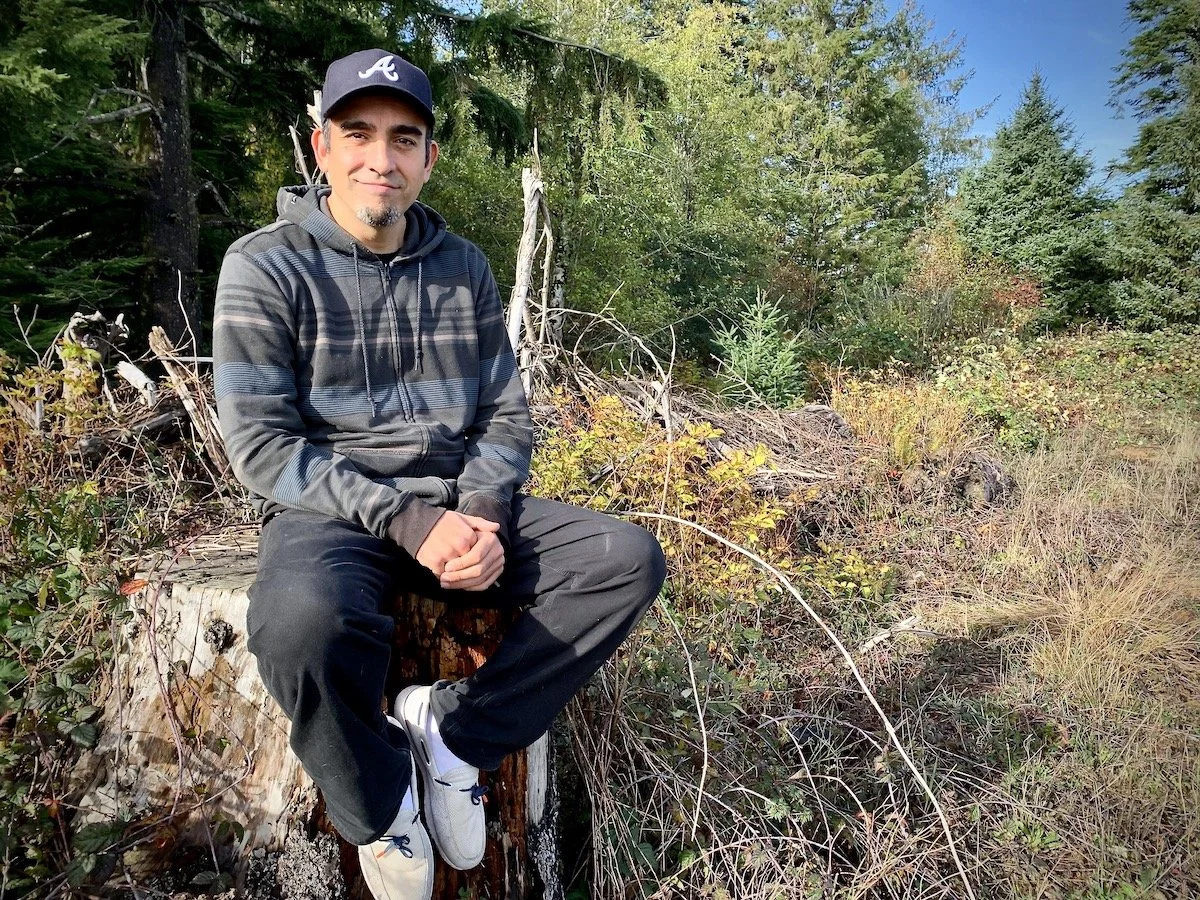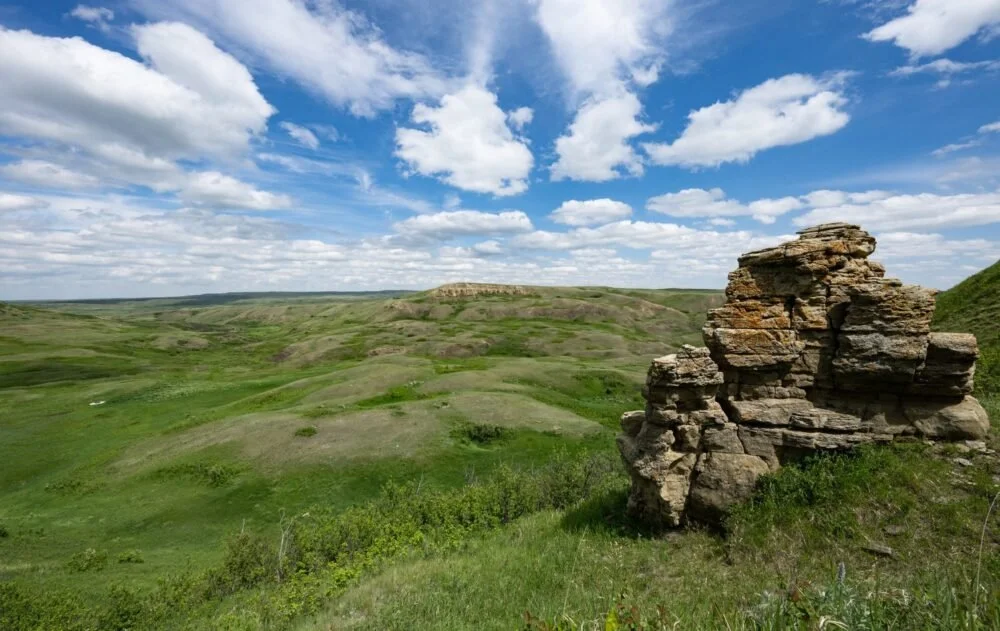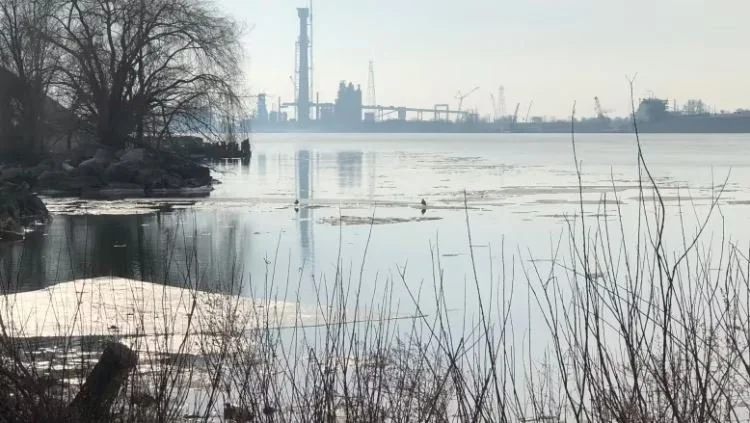A coastal First Nation’s Guardian team is gearing up to test the waters to try to limit the impacts of drought in their traditional territories on northeast Vancouver Island. The We Wai Kai First Nation's environmental stewards are partnering with other local groups to map and monitor wetlands, watersheds and streams on Quadra Island as summers get hotter and drier, said Guardian program manager Shane Pollard. Drought in the northeastern Vancouver Island water basin, which includes We Wai Kai territory and Quadra Island, is increasingly common.
Disrupting the myth of water abundance in Ontario
Ontario may seem to be a water secure region, but new research out of the University of Waterloo challenges the myth of water abundance in the Great Lakes watershed. Using a first-of-its-kind risk analysis, researchers connected water quality, quantity, regulations and public concern to obtain a more comprehensive picture of water security at the local level. The novel approach revealed that at least half of the studied watersheds had a moderate to high potential for risk.
Drinking water, aquatic life at risk due to B.C.’s fire-ravaged summer: experts
Experts say the extent to which wildfires have burned across the province this year will have serious implications for the quality of B.C.’s watersheds and the ecosystems that rely on them. John Richardson, a Department of Forest and Conservation Sciences professor at the University of British Columbia, says with so many hillsides scorched by wildfires this year, there’s nothing to prevent incoming rain from creating a “debris torrent” — something which spells bad news for the province’s drinking water.
Conservation leaders join forces on largest private grassland project in Canadian history
The Nature Conservancy of Canada (NCC) and Ducks Unlimited Canada (DUC) are working together to conserve one of the largest remaining tracts of intact Prairie grasslands and wetlands in Canada. McIntyre Ranch, located south of Lethbridge, will be conserved through an agreement (conservation easement) between the landowners and the two organizations. This 130-year-old ranch is one of the largest private landholdings in Canada, and spans over 22,000 hectares — an area more than a quarter the size of Calgary.
Here's a snapshot of some of Canada's salty waterways harming ecosystems
A number of Canadian cities have exceeded acceptable chloride levels in watersheds in recent years, raising concerns about the impact on freshwater wildlife and other species. The problem largely stems from road salt and saline solutions, which have a chemical compound of chloride to keep roadways safe during winter weather.
Surface water quality, tree cover get bad grades from conservation authority
The Essex Region Conservation Authority (ERCA) released its report cards for the watersheds in the region, and while some results are positive, ERCA concluded some areas need improvement. The report cards, which are given based on five years of data collection, are given out by conservation authorities across Ontario using standardized methodologies to grade surface water and groundwater quality and forest cover, according to Katie Stammler, a water quality scientist with ERCA.
Back to top Celebrating a historic $100M in B.C. watershed protection
Living Lakes Canada is celebrating the BC Government’s decision to invest a historic $100 million into safeguarding the province’s watersheds. This unprecedented investment, announced as part of Budget 2023, will go towards the establishment of a long-term Watershed Security Fund that will be co-managed by B.C. First Nations and support communities to increase their adaptation options in anticipation of continuing climate change impacts. “Living Lakes Canada applauds the provincial government for taking this concrete step forward in watershed protection for the province,” said Kat Hartwig, Executive Director of Living Lakes Canada.
Southern Alberta ranchers conserve land to help protect drinking water for cities
Justin Thompson and Matt Kumlin walk up a hill toward a ridge in the Alberta foothills as a border collie and “cow-dog-in-training” named Newt tags along. At the top of the ridge, the snow-capped Rocky Mountains are visible to the west. Calgary’s downtown is about 40 kilometres to the east. More than six square kilometres of the property around them has been protected by the Kumlin family with a conservation easement, which restricts land uses that could damage its ecological health.
Disappearing glaciers in B.C. put tourism, watersheds at risk: scientist
An estimated 80 per cent of B.C.’s glaciers are forecast to completely disappear and the impacts will trickle well beyond less beautiful vistas for British Columbians to look at. But any action to fight climate change can nonetheless help save glaciers in B.C.’s northern coastal mountains, one expert says. Brian Menounos, professor of geography at the University of Northern British Columbia and a Canada Research Chair in Glacier Change, recently co-authored a study in publication Science, with research suggesting implications for tourism, watersheds and public safety.
Parks Canada to reopen Trent-Severn Waterway locks for navigation on June 24
Parks Canada will reopen locks on the Trent-Severn Waterway on Friday which were recently closed due to high water flows and water levels. The reopening will mean daytime navigation will begin at 9 a.m. on Friday, June 24. Since June 1, the Trent-Severn’s watersheds received significant amounts of precipitation, prompting Parks Canada to close some lock stations in the interest of public safety.
Spring runoff appears to have peaked in northwestern Ontario, but flood risks remain
Even though northwestern Ontario is drying up after a wet start to spring, officials are still watching the watersheds for potential flood risks. Lakehead Region Conservation Authority in Thunder Bay has downgraded its outlook from a flood watch to a conditions statement after area rivers and streams have reached their peak earlier this week. Still it's too early for people to let their guard down.
'Water's Cool': Charlottetown-area leaders learn from water conservation program for Grade 5 students
Some municipal staff and politicians in the Charlottetown area went back to school last week — to 'Water's Cool' Water School. The water conservation program for Grade 5 students was originally created by staff with the Town of Stratford in 2011. The program expanded to include students in Charlottetown in 2019, and to date, more than 3,000 students have attended.
Good news for water: BC budget contained good news for water protection
Peachland residents, Syilx people and water leaders are encouraged the provincial government has acknowledged many communities in B.C. face a water crisis, made worse by a changing climate and increased land uses. Budget 2022 dedicates $30 million in much-needed funding to safeguard B.C.’s watersheds by supporting local and Indigenous governments and non-profits like Peachland Watershed Protection Alliance doing watershed work. As the climate crisis continues, we are also pleased to see the government recognize the central role those resilient watersheds play in our lives by investing in much-needed floodplain mapping and outdated flood infrastructure, which will make our communities more resilient to future storms and floods.
B.C. securing watersheds for a stronger future Updated on Jan. 25, 2022
Climate change and extreme weather events are strengthening the call for protection and restoration of B.C.’s watersheds to ensure healthy ecosystems support communities with secure access to clean water. The Province is developing B.C.’s first Watershed Security Strategy and Fund. The first step is to explore key themes, including governance, climate change, ecosystems and sources of drinking water, as well as community and economic stability, through the release of a discussion paper for feedback. The Province is developing the strategy with Indigenous Peoples and in collaboration with other levels of government.
B.C.'s cold snap could have positive effects going into spring, experts say
The cold snap and high amounts of snowfall currently blanketing B.C. may have long-term benefits for the province, according to experts. Environment Canada has issued extreme weather warnings for most of B.C. on Thursday, with up to 30 centimetres of snow expected in Metro Vancouver and 25 centimetres on Vancouver Island.
Calls for Columbia Basin watershed monitoring
This is the first of four articles submitted by Living Lakes Canada (LLC), the respected Columbia Basin-based water stewardship group that works to monitor and protect Canada’s lakes, rivers, wetlands, and watersheds. After a record-breaking summer of heat, drought, and fires, experts in the Columbia Basin are stressing the importance of water monitoring and watershed management to secure our water supplies.
Well water fears prompt calls to halt proposed bottling plant near B.C. village
Angie Kane knows how important well water is when you live in the heart of dry, rural B.C. For 17 years, she lived on a ranch outside Clinton, a semi-desert village about 120 kilometres northwest of Kamloops. Many residents who live outside municipal boundaries draw water from aquifers. For Kane, the arid climate always kept the importance of her water supply top of mind. "That is the biggest concern, for anyone who has a well, is will it dry up? Or will it go away?" she told CBC News.
Governments Improving Lake Erie Water Quality
The governments of Canada and Ontario are investing more than $2.5 million to help farmers improve water quality and soil health in the Lake Erie and Lake St. Clair watersheds. Investments increase environmental sustainability and productivity The governments of Canada and Ontario are investing more than $2.5 million to help farmers improve water quality and soil health in the Lake Erie and Lake St. Clair watersheds. Through the Canadian Agricultural Partnership (the Partnership), the Lake Erie Agriculture Demonstrating Sustainability (LEADS) initiative will support 220 farmer-led, regionally targeted cost-share projects to help farmers improve soil health and reduce the risk of nutrient losses on their farms located in the Lake Erie and Lake St. Clair watersheds.
Water levels on Ottawa River, Rideau River expected to rise this weekend due to heavy rainfall
Heavy rain in the forecast this weekend is expected to cause water levels to rise along the Ottawa River and the Rideau River watershed. However, officials don't expect excessive flooding along the Ottawa River this spring. Environment Canada is calling for 15 to 25 millimetres of rain in Ottawa on Friday, with more rain in the forecast on Sunday.
Equity is key to the future of Alberta’s watersheds, experts say
For World Water Day 2021, the United Nations wants us to think about how we value water, and the ways it benefits our lives. If we want to continue to have access to water in all the ways we value, UCalgary experts say that equity needs to be the goal: equitable access to water, equitable opportunities to have a say in the future of our watersheds, and equitable consideration of sustainable approaches.





















